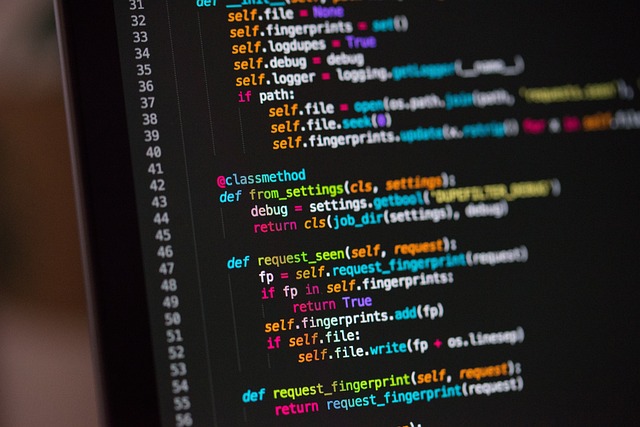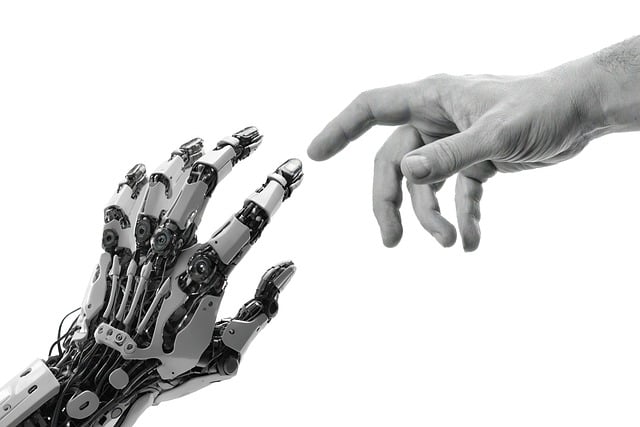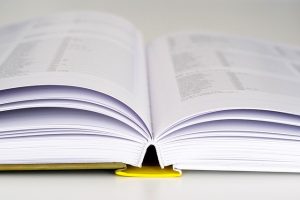Translation services for UK Research and Development (R&D) documents are essential for companies seeking to communicate complex scientific information with precision and cultural relevance to British audiences. These specialized translation services ensure that R&D materials meet local regulatory standards, such as GDPR for data protection and intellectual property laws post-Brexit. They facilitate clear communication, protect sensitive information, and enhance market potential by demonstrating commitment to compliance and consumer trust. By leveraging expert translators with knowledge of both the subject matter and the legal landscape, these services enable R&D organizations to navigate the UK market effectively, ensuring that their research outputs are accessible and compliant across all relevant frameworks, thereby supporting successful international collaboration and innovation within the UK context.
Navigating the complexities of research and development (R&D) in a multinational context necessitates precise communication, particularly when localizing materials for UK audiences. This article delves into the critical role of translation services in effectively adapting R&D documentation to meet the linguistic and cultural nuances of the UK market. We explore key considerations for accurate technical translation within the R&D sector, ensuring legal compliance with data protection and intellectual property rights, and the importance of selecting a reliable service provider. With an emphasis on the most common languages required for UK R&D materials and case studies highlighting successful localization projects, this guide is tailored to enhance your understanding and approach to translating R&D documents in the UK context.
- Understanding the Importance of Localization for UK R&D Materials
- Overview of Translation Services Specializing in Research and Development Documentation
- Key Considerations When Localizing R&D Documents for a UK Audience
- The Role of Cultural Nuances in Effective UK Market Research and Development Translations
- Identifying the Most Common Languages Required for UK R&D Materials
- Strategies for Accurate Technical Translation Within the R&D Sector
- Legal Compliance: Ensuring Data Protection and Intellectual Property Rights in Translated Documents
- Case Studies: Successful Localization Projects in UK Research and Development
- Selecting a Reliable Translation Service Provider for Your UK R&D Documentation Needs
Understanding the Importance of Localization for UK R&D Materials

When aiming to effectively communicate research and development findings or methodologies within the United Kingdom, localization of R&D materials is paramount. The UK’s diverse cultural context and regulatory environment necessitate that R&D documents are accurately translated to resonate with local audiences. Utilizing specialized translation services for UK Research and Development Documents ensures that scientific terminology, idiomatic expressions, and cultural nuances are correctly interpreted and reflected in the target language. This is crucial for maintaining the integrity of research data and facilitating clear understanding among stakeholders, including researchers, regulatory bodies, and industry partners.
Moreover, localization extends beyond mere linguistic translation; it involves adapting content to align with the UK’s legal, technical, and cultural standards. For instance, units of measurement, dates, and currencies may require conversion to be relevant and usable for UK-based audiences. By leveraging expert translation services for UK Research and Development Documents, organizations can navigate these complexities effectively, thereby enhancing the credibility and applicability of their R&D materials within the UK context. This meticulous approach not only aids in compliance with local regulations but also demonstrates respect for the UK’s unique scientific community, ultimately fostering better collaboration and knowledge sharing.
Overview of Translation Services Specializing in Research and Development Documentation

When localizing R&D materials for UK audiences, it’s crucial to engage with translation services that specialize in research and development documentation. These services offer more than just word-for-word translations; they provide linguistic experts who are well-versed in the technical jargon and complex concepts inherent to R&D. This ensures that the nuances of scientific language are accurately conveyed, maintaining the integrity of the original content. For UK Research and Development Documents, such translation services tailor their approach to comply with local standards and regulations, which is essential for successful communication and collaboration within the scientific community. They also adapt the documentation to align with cultural norms and idiomatic expressions used in the UK, ensuring that the translated materials resonate with local audiences and stakeholders. By leveraging these specialized translation services, organizations can effectively bridge the gap between global research and local application, facilitating smoother innovation processes and fostering a collaborative environment for scientific advancement.
Key Considerations When Localizing R&D Documents for a UK Audience

When localizing research and development documents for a UK audience, it’s crucial to consider the linguistic nuances and cultural context that differentiate the British market from others. High-quality translation services for UK R&D documents are indispensable in this process. These services should go beyond mere word translation; they must accurately convey the technical content, terminology, and regulatory requirements specific to the UK. Special attention should be given to units of measure, scientific jargon, and references that align with British standards. Furthermore, localization teams must be adept at adapting the document’s style and tone to resonate with the UK audience while maintaining the integrity of the original research. This involves not only translating the content but also understanding the cultural implications and legal frameworks unique to the UK, ensuring that the final document is both accurate and relevant for local stakeholders. By leveraging expert translation services for UK R&D documents, organizations can bridge the gap between global research and local application, facilitating smoother collaboration and more effective communication within the UK scientific community.
The Role of Cultural Nuances in Effective UK Market Research and Development Translations

When localizing R&D materials for UK audiences, it’s imperative to consider cultural nuances to ensure effective communication and relevance within the context of market research and development. Translation services for UK Research and Development Documents must transcend mere linguistic equivalence; they must capture the subtleties of British culture, idiomatic expressions, and the local regulatory framework that governs R&D activities. A superficial translation can lead to misinterpretation or even non-compliance with UK regulations, which could jeopardize the entire research and development process. To effectively bridge the gap between international R&D findings and their UK application, specialized translation services are essential. These services should be adept at interpreting complex scientific content while also understanding the local market’s nuances, thus facilitating a seamless integration of knowledge and ensuring that R&D materials resonate with UK stakeholders. The right translation service will not only accurately translate documents but also adapt them to align with the cultural, social, and professional expectations specific to the UK market. This ensures that the intended message is conveyed effectively and that the materials comply with both local standards and scientific integrity, thereby enhancing the prospects of successful R&D outcomes in the British context.
Identifying the Most Common Languages Required for UK R&D Materials

When localizing R&D materials for UK audiences, identifying the most common languages required is a critical first step. The United Kingdom is a melting pot of cultures and languages, with English being the primary language spoken by approximately 95% of the population. However, to effectively communicate with diverse communities within the UK, translation services for UK Research and Development Documents become indispensable. Key languages that researchers and developers should consider include British Sign Language (BSL) for the deaf and hard-of-hearing community, Welsh and Scottish Gaelic for respective regions in the UK, and perhaps less commonly spoken languages like Urdu or Punjabi, which are spoken by significant minority groups. Additionally, with the UK’s historical ties to countries within the Commonwealth, languages such as Bengali, Gujarati, and Hindi may also be relevant. Utilizing specialized translation services ensures that R&D materials are accurately conveyed in a manner that is accessible and understandable to all potential audiences, thereby facilitating inclusive research practices and fostering collaboration across linguistic barriers.
Strategies for Accurate Technical Translation Within the R&D Sector

When localizing research and development materials for UK audiences, precision in translation services is paramount. Effective strategies for accurate technical translation within the R&D sector involve a deep understanding of both the source and target languages, as well as the subject matter. Translation teams must be composed of experts with a background in the specific field of research, ensuring that terminology is consistent and technical jargon is accurately conveyed. Employing specialized translation services for UK R&D documents is crucial to bridge the gap between international research findings and their practical application within the UK context. These services should leverage advanced technologies such as computational linguistics and machine learning algorithms to facilitate precise translations, while also incorporating human expertise to address nuances that automated systems may overlook. By doing so, R&D organizations can ensure that their materials are not only technically accurate but also culturally relevant and compliant with UK regulations, thereby enhancing collaboration and innovation across borders. Furthermore, a robust quality assurance process should be in place to review translations and confirm their accuracy before dissemination, ensuring that the scientific integrity of the R&D documents is upheld.
Legal Compliance: Ensuring Data Protection and Intellectual Property Rights in Translated Documents

When localizing research and development materials for UK audiences, it is imperative to navigate the intricacies of legal compliance to ensure data protection and intellectual property rights are upheld in translated documents. Translation services for UK R&D documents must be adept at adhering to the General Data Protection Regulation (GDPR) which governs the handling of personal data within the European Union, including the UK post-Brexit. These services must also safeguard the intellectual property contained within these materials. This involves a thorough understanding of both UK patent laws and international intellectual property agreements, ensuring that sensitive information remains secure across linguistic and jurisdictional boundaries. Utilizing specialized translation services for UK R&D documents not only facilitates clear communication but also aligns with legal obligations, minimizing the risk of data breaches or unauthorized use of intellectual property. By leveraging expertise in both language and law, these services provide a critical bridge for R&D organizations looking to effectively engage with the UK market while maintaining compliance with all relevant legal frameworks.
Case Studies: Successful Localization Projects in UK Research and Development

Companies operating within the UK’s Research and Development (R&D) sector often require their materials to be tailored to the local context, ensuring clarity and relevance for British audiences. Translation services specializing in R&D documentation have proven instrumental in this endeavor. For instance, a leading pharmaceutical company successfully navigated the complexities of drug trial approval by localizing its clinical trial protocols and results summaries. By employing expert translation services for UK R&D documents, they were able to align their materials with British regulatory standards, facilitating a smoother approval process and accelerating their product’s time-to-market. Another case study involves a technology startup that developed an innovative prototype. To expand its market reach, the startup localized its user manuals and technical specifications using professional translation services tailored for UK audiences. This strategic move not only demonstrated their commitment to British consumers but also ensured compliance with local standards, leading to increased trust and market penetration. Both examples highlight the significance of tailoring R&D materials to the UK context through high-quality translation services, which can be a critical factor in the successful deployment of new technologies and products.
Selecting a Reliable Translation Service Provider for Your UK R&D Documentation Needs

When localizing R&D documentation for UK audiences, choosing a translation service provider that specializes in scientific and technical content is paramount. The nuances of research and development documentation require translators with not only linguistic expertise but also an understanding of industry-specific terminology and context. Opting for a service provider adept in UK Research and Development Documents ensures that your materials are accurately translated, maintaining the integrity and clarity of the original content. Look for providers with a proven track record in this niche, as they will be familiar with the regulatory standards and cultural nuances specific to the UK. Their proficiency will facilitate seamless communication across international teams, enabling effective collaboration and compliance with local regulations.
In your pursuit of a reliable translation service provider, consider those offering native UK linguists who are well-versed in both scientific language and the regional variations of English. Such providers can offer context-appropriate translations that resonate with UK researchers and developers. Additionally, they should employ the latest technology to ensure consistency across documents, which is crucial for maintaining the quality and reliability of your R&D outputs. With a focus on precision and attention to detail, these service providers become an invaluable asset to your research and development operations within the UK market.
In conclusion, localizing R&D materials for UK audiences is a multifaceted process that necessitates attention to linguistic precision, cultural relevance, and legal compliance. Utilizing specialized translation services for UK Research and Development Documents ensures that your materials resonate with the target audience while maintaining the integrity of the original content. By considering key factors such as the most common languages required and implementing robust strategies for accurate technical translation, companies can effectively bridge the gap between global innovation and local application. The success stories highlighted in this article underscore the transformative impact of thoughtful localization, positioning your R&D materials to make a meaningful contribution within the UK’s dynamic scientific landscape. Selecting a reliable translation service provider with expertise in this domain is a strategic investment that can enhance your project’s reach and effectiveness, ultimately paving the way for successful research and development initiatives in the UK market.
